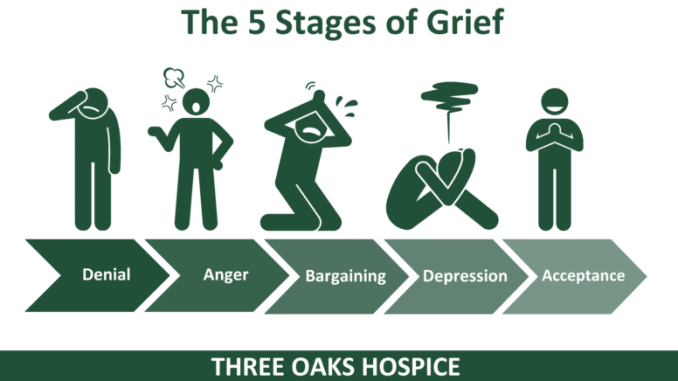
Grief and emotional loss are feelings that everyone experiences at some point in their lives. Whether it’s the loss of a loved one, a job, a relationship, or a dream, these emotions can be overwhelming and difficult to navigate. In today’s fast-paced world, we often don’t give ourselves the time and space to properly grieve and heal. However, it’s essential to acknowledge these feelings and work through them in a healthy way.
Understanding Grief
Grief is a natural response to loss. It’s a complex mix of emotions, ranging from sadness and anger to guilt and confusion. Everyone experiences grief differently, and there’s no right or wrong way to grieve. It’s important to give yourself permission to feel your emotions and not bottle them up.
Accepting Your Feelings
It’s essential to accept your feelings and be gentle with yourself. Allow yourself to cry, scream, or be angry. Don’t suppress your emotions or try to numb them with unhealthy coping mechanisms like alcohol or drugs. Instead, find healthy outlets for your feelings, such as talking to a therapist, journaling, or practicing mindfulness and meditation.
Building a Support System
During times of grief, it’s crucial to lean on your support system. Reach out to friends, family, or a support group for comfort and understanding. Surround yourself with people who can listen without judgment and offer a shoulder to lean on. Talking to others about your feelings can help you process your emotions and feel less alone.
Practicing Self-Care
Self-care is essential when you’re grieving. Make sure to take care of your physical health by eating nutritious foods, getting enough sleep, and exercising regularly. Engage in activities that bring you joy and relaxation, whether it’s reading a book, listening to music, or spending time in nature. Taking care of yourself can help you navigate your emotions and heal from your loss.
Seeking Professional Help
If you’re struggling to cope with your grief, don’t hesitate to seek professional help. A therapist or counselor can provide you with the tools and support you need to work through your emotions and move forward. Therapy can help you process your feelings, create coping strategies, and gain a new perspective on your loss.
Allowing Yourself to Heal
Healing from grief takes time, and it’s essential to be patient with yourself. Allow yourself to feel your emotions without judgment and give yourself the space to heal at your own pace. Know that it’s okay to have good days and bad days, and that healing is a process that unfolds over time. Be kind to yourself as you navigate your grief journey.
Conclusion
Grief and emotional loss are challenging experiences that can leave us feeling lost and overwhelmed. However, by acknowledging our feelings, building a support system, practicing self-care, seeking professional help, and allowing ourselves to heal, we can navigate our grief in a healthy way. Remember that healing takes time, and it’s essential to be patient with ourselves as we work through our emotions. By taking care of ourselves and seeking support, we can move through our grief and find a sense of peace and healing.
Remember that it’s okay to feel your emotions and to grieve in your own way. Allow yourself the time and space to heal, and know that you are not alone in your journey through grief and emotional loss.
